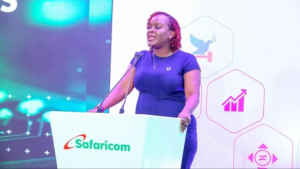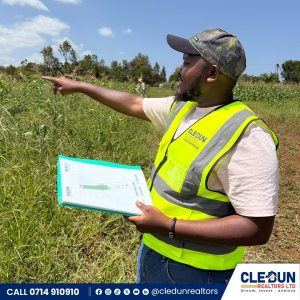By Joseph Gituma
The long-awaited shift to Kenya’s Electronic Government Procurement (e-GP) system marks a defining moment in the country’s public procurement journey.
As of July 1, 2025, all government entities, both national and county, are required to adopt this digital platform for their procurement processes.
While this transition may appear technical on the surface, its deeper implications point to something far more transformative. It brings an opportunity to rebuild public trust, eliminate systemic inefficiencies, and create a fairer marketplace for all.
Historically, procurement in Kenya has been synonymous with bureaucracy, paperwork, and opaque decision-making. As has been, public tenders are advertised per institution, with each managing its own procurement manually.
This meant mounds of physical documentation were not only vulnerable to loss or tampering, but also subject to human bias during sorting and evaluation. Human contact, while necessary in some areas, has proved to be the weak link prone to manipulation, favoritism, canvassing, and the solicitation of facilitation fees (a euphemism for corruption) to tilt awards in certain directions.
The e-GP system, if properly managed and institutionalized, disrupts this status quo. This is because it digitizes and centralizes procurement processes, significantly reducing manual handling.
Further, it allows real-time access and visibility across all stages of the tender process, starting from submission to evaluation and finally, award.
This is not merely a shift in platform, rather it is a shift in philosophy, that has placed transparency and accountability at the heart of public financial management.
Another positive for the e-GP is its potential to level the playing field by democratizing access to procurement opportunities. For too long, the process has been impenetrable to smaller businesses, especially women- and youth-led enterprises, due to complex compliance demands, serialization rules, legal jargon, and documentation overload.
It has also been marred by questionable documentation requirements designed to favor select bidders while shutting out many qualified ones. The e-GP sweeps away these barriers with standardized digital workflows, real-time error checks, and AI-powered guidance, drastically cutting preventable disqualifications and making it easier for all qualified suppliers to compete on merit.
In fact, procurement officers have observed that nearly 60% of disqualified tenders stem from preventable errors such as missing signatures, mislabelled folders, or overlooked forms. With digital workflows and standardized templates, the e-GP platform can drastically reduce these pitfalls. Automation tools powered by AI can flag incomplete bids in real time, guide applicants through required steps, and streamline evaluations with auditable digital footprints.
By removing physical and procedural bottlenecks, the system levels the field, empowering all qualifying suppliers, regardless of size, to compete fairly.
For oversight bodies, the benefits are even more significant since with e-GP, compliance tracking becomes instantaneous. This is possible because the system links directly to the Integrated Financial Management Information System (IFMIS) and the Kenya Revenue Authority’s (KRA) online tax filing and management system. It also links directly to Access to Government Procurement Opportunities (AGPO) and company registries, allowing seamless verification of KRA compliance, company status, and ownership credentials.
Crucially, e-GP provides the government with a powerful tool to boost revenue collection by aligning contract awards with payable taxes, which is an avenue that could be manipulated in the past. This linkage not only reduces errors but also shuts down avenues for forged documents and ghost suppliers.
Moreover, Artificial Intelligence-enabled evaluation modules allow procurement officers to focus on substance over superficial compliance, ensuring that evaluation criteria are consistently applied, and decisions are based on merit rather than manipulation.
Ultimately, the question is not whether digital procurement is necessary, but how effectively it will be adopted and governed.
Kenya’s e-GP rollout presents a golden opportunity to reposition procurement as a cornerstone of public integrity and economic empowerment.
Yes, there might be teething problems such as bandwidth limitations, training gaps, and resistance to change. But the cost of clinging to broken systems is far higher.
A transparent and efficient procurement environment attracts investment, unlocks value for taxpayers, and strengthens public institutions. For a country aiming to digitize 80% of government services under the Digital Superhighway Agenda, procurement cannot be left behind.
As such and with this agenda in mind, procurement professionals, whether in government or the private sector, must lead this change, not just adapt to it.
As stakeholders in risk management, compliance, and enterprise support, we see this moment as a clarion call to modernize not only our tools, but our mindset.
It’s not just about going paperless. It’s about going fearless—into a future where integrity, innovation, and inclusivity drive Kenya’s public procurement forward.
The writer is the Associate General Manager- Business Development- Minet Kenya.







More Stories
Youth in Four Counties Receive103.9M NYOTA Start-Up Boost
‘Chromoka’ Campaign Crowns Eight Millionaires, 2M Still Up for Grabs
I&M Foundation Commits 30M to Support 100 Senior Secondary Students